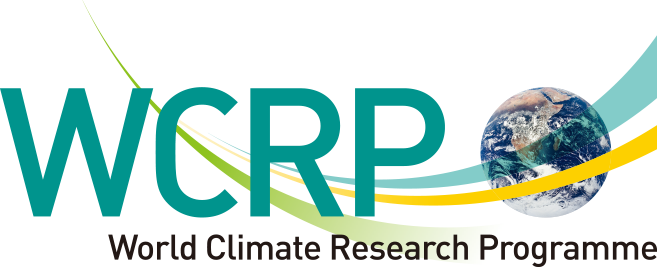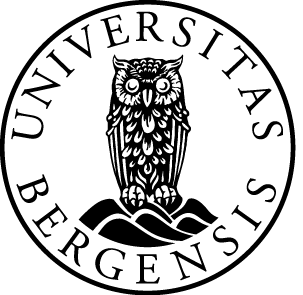CLIVAR Climate Dynamics Panel (CDP) annual workshop: External versus internal variability on decadal and longer time scales
CLIVAR Climate Dynamics Panel (CDP) annual workshop:
External versus internal variability on decadal and longer time scales
Online 6 weekly 2-hour sessions from September 14th to October 21st, 2022
download the pdf flyer here
1. Description
2. Format
3. Abstract submission
4. Programme
5. Organizing committee
The International CLIVAR Climate Dynamics Panel (CDP) plans to organize workshops annually. The first CDP annual workshop will target our understanding of internal and externally forced variability in the climate system, their interaction on decadal timescales and longer, and the effects of variability on extreme events. We invite submissions on the topic with the aim of tackling the following overarching questions:
• How to isolate the relative contributions of external and internal variability to observed decadal and longer variability?
• How do the various external forcings modulate internal variability?
• Progress in narrowing observational and modeling uncertainties in external and internal variability
• Effects of external and internal variability on extreme events
We welcome studies based on models (including SMILEs), theory, historical and proxy observations, novel methods (e.g., ensemble paleoclimate reanalysis). The goal of this workshop is to foster discussion that will stimulate focused research on this important topic.
The workshop will consist of 6 weekly 2-hour sessions from September 14th to October 21st, 2022, including 4 oral sessions, 1 poster session and 1 final panel discussion. The sessions will be on each Wednesday with the timings varying to accommodate participation from different time zones.
|
Session 1: 14th September, 2022 (Wednesday) |
|||
|---|---|---|---|
|
Time (UTC) |
Chairs: Natalie Burls, Noel Keenlyside |
||
|
12:55-15:00 |
Topic |
Presenter |
Abstract |
|
12:55-13:00 |
Opening remark |
Noel Keenlyside |
|
|
13:00-13:20 |
Talk 1: Spurious Pacific Connections to Internal Atlantic Multidecadal Variability Introduced by the Global Residual Method |
Clara Deser (NCAR, USA) |
Download Abstract |
|
13:20-13:40 |
Talk 2: A stronger Walker circulation and colder eastern equatorial Pacific in the early 21st century: a transient forced response to global warming versus natural variability |
Alexey Fedorov (Yale University and LOCEAN/Sorbonne University, USA) |
Download Abstract |
|
13:40-14:00 |
Talk 3: Human Emissions Drive the Pacific Decadal Oscillation |
Jeremy Klavans (University of Colorado, USA) |
Download Abstract |
|
14:00-14:20 |
Talk 4: Anomalous SST trends 1979-present: Internal variability or systematic climate model forced response bias? |
Robert Jnglin Wills (University of Washington, USA) |
Download Abstract |
|
14:20-15:00 |
Q&A |
||
|
Session 2: 21st September 2022 (Wednesday) |
|||
|
Time (UTC) |
Chairs: Michael Byrne, Juliette Mignot, Sarah Kang |
||
|
5:00-6:30 |
Topic |
Presenter |
|
|
5:00-5:20 |
Talk 5: Relative roles of ozone-depleting substances, greenhouse gases and internal variability on recent Southern Hemisphere stratosphere-troposphere coupled circulation trends |
Antara Banerjee (CIRES/NOAA, USA) |
Download Abstract |
|
5:20-5:40 |
Talk 6: The Sun’s role in decadal climate predictability in the North Atlantic |
Annika Drews (Danish Meteorological Institute, Denmark) |
|
|
5:40-6:00 |
Talk 7: Weakening of the Silk Road teleconnection pattern under global warming in CMIP6 projections |
Yu Kosaka, University of Tokyo, Japan |
|
|
6:00-6:30 |
Q&A |
||
|
Session 3: 28th September 2022 (Wednesday) |
|||
|
Time (UTC) |
Chairs: Noel Keenlyside, Alexey Karpechko |
||
|
15:00-16:30 |
Topic |
Presenter |
Abstract |
|
15:00-15:20 |
Talk 8: Implications of historical radiative forcing and its uncertainties for understanding observed climate variability and change |
Amanda Maycock (University of Leeds, UK) |
Download Abstract |
|
15:20-15:40 |
Talk 9: Reconstructing internal and forced centennial variability in the Southern Ocean using data assimilation |
Hugues Gooses (Universite catholique de Louvain, Belgium) |
Download Abstract |
|
15:40-16:10 |
Q&A |
||
|
Session 4: 5th October 2022 (Wednesday) |
|||
|
Time (UTC) |
Chairs: Natalie Burls, Juliette Mignot |
||
|
15:00-17:00 |
Topic |
Presenter |
Abstract |
|
15:00-15:20 |
Talk 10: The Big Breakup: A mid-20th Century Transition in the Behavior of Modes of Climate Variability |
Amy Clement (University of Miami, USA) |
|
|
15:20-15:40 |
Talk 11: The Decadal Variability of Extreme European Heat and Drought Stress |
Laura Suarez-Gutierrez (Max Planck Institute for Meteorology, Germany) |
Download Abstract |
|
15:40-16:00 |
Talk 12: Relative Contributions of Internal and External Drivers for Decadal Rainfall Extremes in Mainland Southeast Asia Over the Last Millennium |
Shawn Wang (Woods Hole Oceanographic Institution, USA) |
|
| 16:00-16:20 | Talk 13: Assessing the influence of low-frequency internal variability on extreme events | Laurent Terray (CECI, CNRS/Cerfacs, France) | |
|
16:20-17:00 |
Q&A |
||
|
Session 5: 12th October 2022 (Wednesday) The poster session is composed of lightning talks (1 min and only for the Early Career Scientists) followed by the poster gallery where people can review all the posters on one webpage and can freely talk to the presenters. |
|||
|
Time (UTC) |
Chairs |
||
|
5:30-7:30 |
Alexey Karpechko, Sarah Kang |
|
|
|
14:30-16:30 |
Noel Keenlyside, Juliette Mignot: Natalie Burls, Michael Byrne |
|
|
|
Session 6: 19th October, 2022 (Wednesday) |
|||
|
Time (UTC) |
Chairs |
||
| 14:30-16:00-16:00 |
Theme 1: Doug Smith |
||
Scientific Organizing committee
• Sarah Kang (Ulsan National Institute of Science and Technology)
• Noel Keenlyside (University of Bergen)
• Juliette Mignot (IRD/Sorbonne Université)
• Natalie Burls (GMU College of Science)
• Alexey Karpechko (Finnish Meteorological Institute)
• Michael Byrne (Univ. St Andrews)
Please register and submit the abstract here. Please kindly note that oral sessions are intended to set the stage for the panel discussion so there will be very few abstracts selected for oral presentation.
Abstract submission deadline: June 24th (Extended to July 1st)
Registration deadline: September 1st















Add new comment